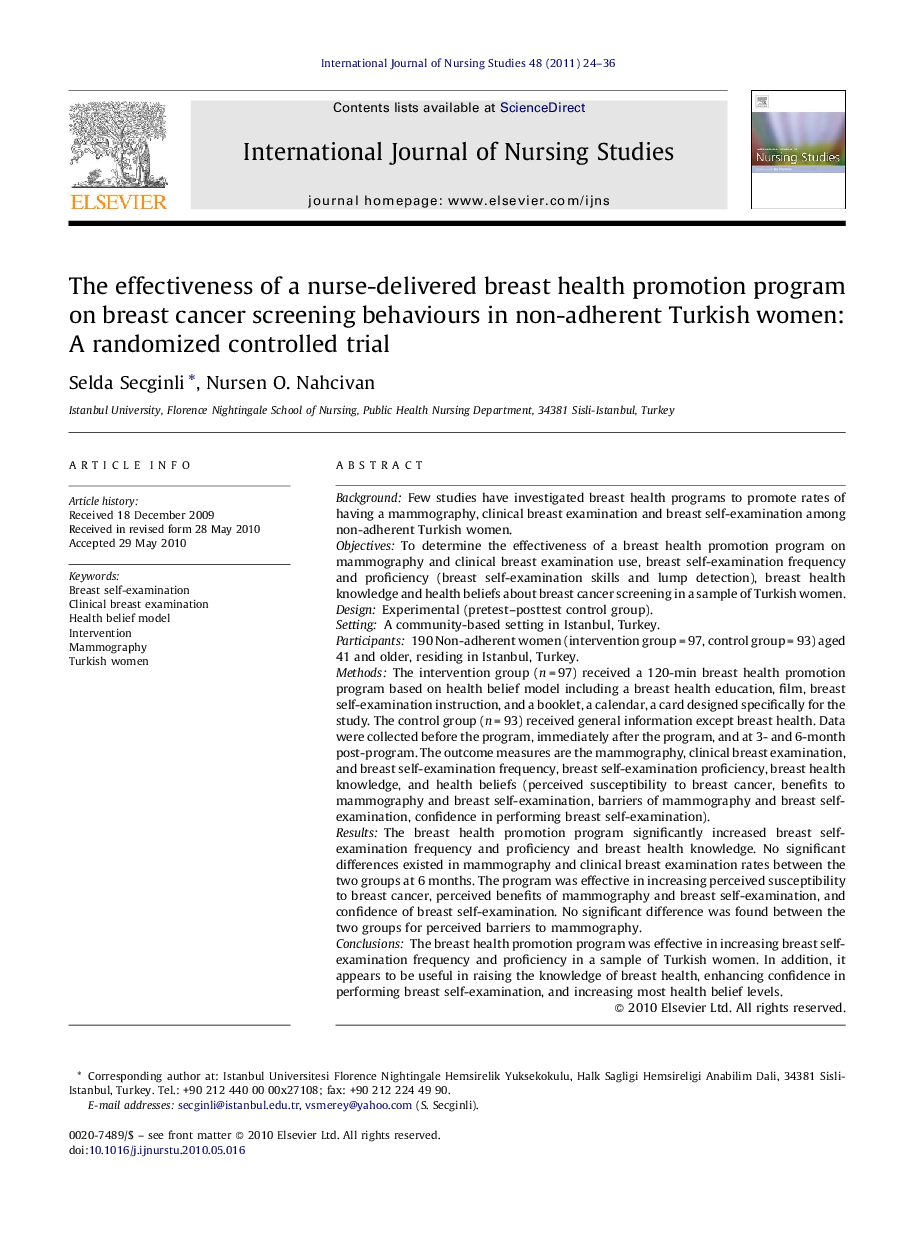| Article ID | Journal | Published Year | Pages | File Type |
|---|---|---|---|---|
| 1076480 | International Journal of Nursing Studies | 2011 | 13 Pages |
BackgroundFew studies have investigated breast health programs to promote rates of having a mammography, clinical breast examination and breast self-examination among non-adherent Turkish women.ObjectivesTo determine the effectiveness of a breast health promotion program on mammography and clinical breast examination use, breast self-examination frequency and proficiency (breast self-examination skills and lump detection), breast health knowledge and health beliefs about breast cancer screening in a sample of Turkish women.DesignExperimental (pretest–posttest control group).SettingA community-based setting in Istanbul, Turkey.Participants190 Non-adherent women (intervention group = 97, control group = 93) aged 41 and older, residing in Istanbul, Turkey.MethodsThe intervention group (n = 97) received a 120-min breast health promotion program based on health belief model including a breast health education, film, breast self-examination instruction, and a booklet, a calendar, a card designed specifically for the study. The control group (n = 93) received general information except breast health. Data were collected before the program, immediately after the program, and at 3- and 6-month post-program. The outcome measures are the mammography, clinical breast examination, and breast self-examination frequency, breast self-examination proficiency, breast health knowledge, and health beliefs (perceived susceptibility to breast cancer, benefits to mammography and breast self-examination, barriers of mammography and breast self-examination, confidence in performing breast self-examination).ResultsThe breast health promotion program significantly increased breast self-examination frequency and proficiency and breast health knowledge. No significant differences existed in mammography and clinical breast examination rates between the two groups at 6 months. The program was effective in increasing perceived susceptibility to breast cancer, perceived benefits of mammography and breast self-examination, and confidence of breast self-examination. No significant difference was found between the two groups for perceived barriers to mammography.ConclusionsThe breast health promotion program was effective in increasing breast self-examination frequency and proficiency in a sample of Turkish women. In addition, it appears to be useful in raising the knowledge of breast health, enhancing confidence in performing breast self-examination, and increasing most health belief levels.
